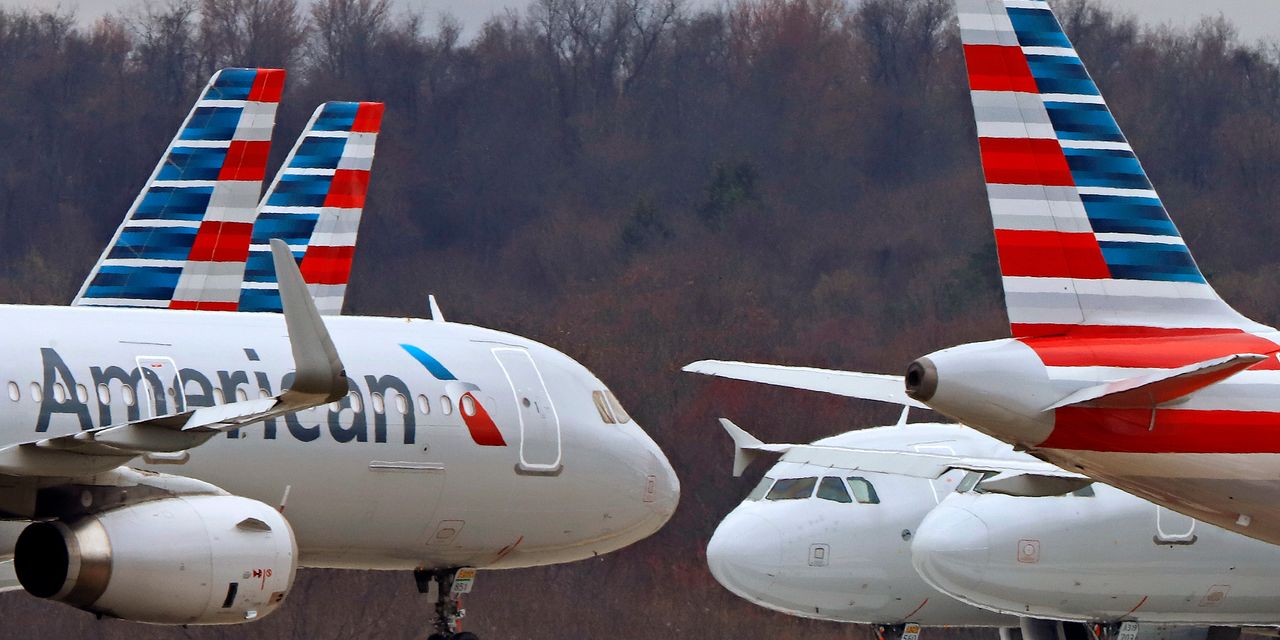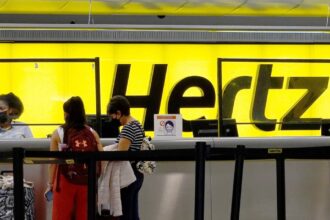Major U.S. airlines are planning schedule cuts mostly in New York City area airports ahead of peak summer air-travel season as air-traffic controller shortages simmer.
Airlines have until the end of the month to make federal aviation regulators aware of any schedule adjustments as a result of a waiver related to closely guarded “slots,” or authorization to use airports in the area, and some have already said they would be cutting down on flights for now.
The Federal Aviation Administration in March announced waivers in requirements for takeoff and landing slots at John F. Kennedy International Airport, LaGuardia Airport and Washington, D.C.’s Ronald Reagan Washington National Airport “due to postpandemic effects” on air-traffic controller staffing.
The waiver will be in effect from mid-May through mid-September, and carriers will be permitted to voluntarily turn in up to 10% of slots held at JFK and LaGuardia as well as affected slots at Reagan, the Federal Aviation Administration said.
American Airlines Group Inc.
AAL,
temporarily will be reducing some flights from New York-area airports as a result of the FAA’s slot waiver, a spokesperson said Thursday.
“However, it is important to note that we will not be exiting any markets or cutting any routes entirely,” and American is reaching out to customers to offer “alternate travel arrangements,” the airline spokesperson said.
A spokesperson for the National Air Traffic Controllers Association, which represents about 20,000 workers, declined to comment on Thursday.
Last month, NATC President Rich Santa testified before the U.S. House of Representatives subcommittee on aviation, saying that the system, while the “safest, most efficient in the world,” continues “to be hampered by funding instability,” causing ground delays and other issues.
Santa told Congress that while the FAA met its air-traffic controller hiring goals for much of the past decade, it has not kept up with attrition. The National Airspace System “remains near a 30-year low in the number of fully certified controllers,” and by the end of last year there were 1,200 fewer controllers employed by the FAA than a decade earlier, and 6% of those who remain are eligible to retire, Santa said.
The FAA’s increased hiring goals for the next few years to 1,800 new employees, which Santa called a “positive development” but one that will not solve the staffing issues because it takes 1 to 3 years of on-the-job training for controllers to
become fully certified.
JetBlue Airways Corp.
JBLU,
said that it began “reviewing options for reducing our flight schedule” at JFK and LaGuardia after the FAA waiver announcement so to help ease constraints. According to a spokesperson, the airline will share “specific details on our schedule reduction once we have finalized our plan.”
“While it is disappointing to reduce flights for customers as they plan their summer holidays and as New York City works to rebound from the pandemic, we are pleased the leadership team at the FAA is proactively working to get in front of this and is being transparent about the staffing shortages,” the JetBlue spokesperson said, adding that the airline has been advocating for Congress to provide the FAA with funding and resources it needs to fully staff air-traffic control.
Related: Airlines face severe pilot shortage as summer travel season nears
Delta Air Lines Inc.
DAL,
said its network team is “looking closely” at schedules and will advise the FAA of any adjustments by the end of the month as the FAA requires.
“Delta commends the FAA for recognizing shared challenges that exist between the FAA, airports and airlines at New York and New Jersey airports” and coordinating a plan that improves operations and mitigates flight disruptions at the peak summer travel season, a Delta spokesperson said.
“Delta is reviewing our network to ensure the best customer experience throughout the summer travel season and we are committed to working with the FAA on measures to ensure the safety and efficiency of operations at the NY/NJ airports,” the spokesperson said.
United Airlines Holdings Inc.
UAL,
did not immediately return requests for comment on potential summer schedule changes. Earlier Thursday, United said it has expanded its international flying by 25% from 2022 to meet increased demand for travel outside of the U.S.
The U.S. Global JETS ETF
JETS,
has lost about 12% in the past 12 months, compared with losses of about 8% for the S&P 500 index
SPX,
in the same period.
Read the full article here










